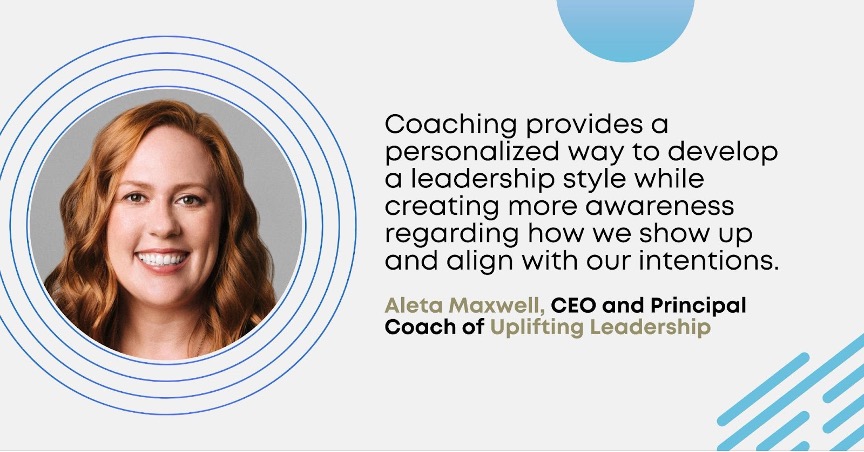
Give one reason coaching skills benefit leaders?
To help you best appreciate the benefits of coaching skills for leadership, we asked career and leadership coaches this question for their best insights. There are several insights that throw light on how coaching skills are essential to the success of a leader in a career setting.
Here are 13 insights into why coaching skills are essential:
· Helps the Leader to focus on Company Objectives
· Enables Better Team Performance
· Helps Leaders Mentor and Guide Their Teams
· Equips Leaders to Communicate with Influence
· Helps Leaders Develop High Emotional Intelligence
· Trains Leaders to Develop Curiosity and Influence
· Helps Leaders Learn Ways to Empower Others
· Equips Leaders with Skills to Guide Employees to Success
· Enables a Leader to Reflect and Get Clarity for Action
· Coaching is a Great Way to Personalize Leadership Development
· Helps Leaders Know How to Motivate
· Coaching Improves Personal Branding for Leaders
· Leaders With Coaching Skills Engage More Effectively with Employees
Helps the Leader to focus on Company Objectives
It is thus effective in combating stress at work. The leader benefits from better fulfillment in the professional environment. In short, business coaching is a key success factor in business development. Its application within society, whether individual or collective, bears fruit in the general advancement of the company.
- Ilija Sekulov, Marketing & SEO at Mailbutler
Enables Better Team Performance
Coaching enables insights through asking powerful questions and gives the leader an opportunity to balance between ask and tell and to deeply listen to their team’s challenges and co-create solutions. If a leader leverages coaching in their day-to-day interactions, they are enabling a mindset to think through with others vs getting the answer from the leader. The team is better empowered to think on their own and ultimately approaches each challenge through a coaching lens.
- Hasan Rafiq, Vice President – Diversity, Equity, Inclusion & Belonging at Newsela
Helps Leaders Mentor and Guide Their Teams
Coaching skills can be seen as a form of mentorship, where the facilitator is guiding the leader in question to improve their team’s performance. The skills that are needed for coaching include identifying strengths and weaknesses and for the coach to be open about their own style. Coaching can help leaders become more aware of their own strengths and weaknesses, which in turn allows them to understand how they should approach different situations. Coaching is seen as a highly effective tool in leadership, which can be used to build individual and team confidence. This process can also help leaders understand their strengths and weaknesses and how they should approach different situations. More specifically, there are four main purposes of coaching that include the following: building team cohesion, enhancing performance, providing feedback on performance, and creating opportunities.
- Darla Wade, Certified Professional Coach at Kainos Empowerment
Equips Leaders to Communicate with Influence
We know that it can be challenging to put your thoughts into words, especially when you’re faced with major decisions or a high-pressure situation. As coaches, we often use phenomenal words. These words are all positive words used to encourage, motivate, inspire. Words such as – empower, create, imagine, opportunity, focus, among others – create opportunities where we remain alert to the possibilities. As a leader using these words can create synergy and trust. According to GALLUP, what followers crave from leaders is stability, compassion and hope. Leaders who can capture these feelings and emotions through enhanced messaging inspire trust and commitment.
Coaches can help create awareness of the words leaders use in their messaging and communication. They can have leaders review their conversations and have them take note of the words that are most impactful and positive. They can ask leaders, “what have you found to be most effective in motivating others by the way you communicate?”
- Maria Carlton, Owner and Chief Potential Officer of Future Reach Coaching, LLC
Helps Leaders Develop High Emotional Intelligence
One of the biggest benefits of coaching skills is to help leaders develop high emotional intelligence. Emotional intelligence will allow leaders to lead with empathy. A leader will become empathic by asking more questions and really listening to the answers. Curiosity and observation will improve the level of a leader’s empathy. The underlying skill involved in empathy is perspective-taking.
- Robert Moment, Executive and Leadership Coach at The Moment Group
Trains Leaders to Develop Curiosity and Influence
The Coaching skill all leaders need to incorporate into their leadership game is Curiosity. Curiosity builds trust through understanding. Curiosity eliminates judgment, allows for vulnerability, and gets to the root issue. It allows today’s leaders to quickly diagnose roadblocks and take the necessary steps to influence others into powerful action.
- Quinn Harwood, Founder & CEO of GrowthTime!
Helps Leaders Learn Ways to Empower Others
As leaders, we need tools that will help us to support our employee’s growth and development. Leaders benefit when their team members are successful. Coaches are trained to understand what should be done to empower people. The number one skill coaches learn is to ask important, open-ended questions and to listen to the responses. Doing this lets us understand what our employees need for their professional development.
- Helen Sanchez, Career Coach and Founder of Tanagui LLC
Equips Leaders With Skills to Guide Employees to Success
Today, leadership is about listening, connecting, influencing, and motivating. Coaching skills center on a foundation of active listening, asking empowering questions, and supporting others to take reflection to action. When leaders have these skills, they can better guide employees to feel a deeper connection to their work and more powerful ownership in accomplishing it.
- Claire Becker, Leadership Coach at Claire Becker Coaching

Enables a Leader to Reflect and Get Clarity for Action
Coaching is all about reflecting – getting clear on what you want, what makes it important, what’s getting in the way, and how to make it happen. When a leader has a clear vision and purpose, it’s easier to influence others. Better yet, if they can help others reflect and get clear on those things, there’s not stopping an empowered and committed team.
- Kimberly Roush, Founder of All-Star Executive Coaching
Coaching is a Great Way to Personalize Leadership Development
I’ve found that many leaders are in leadership because they excel at a “thing”, or the more technical side of their business. Far fewer have been given the opportunity to work on their leadership skills. Coaching provides a personalized way to develop a leadership style while creating more awareness regarding how we show up and align with our intentions. One leader that I work with had never considered how they wanted their team to feel during discussions. Reflecting on this, setting an intention to ground all discussions, and actively centering on this throughout each day led the leader to affect their team in a positive way, engaging and really showing up consistently in a healthy way.
Leaders who are coached increase awareness and learn how to make more intentional choices in their communications, the way they inspire and motivate, and how they engage with their teams to exceed expectations
- Aleta Maxwell, CEO and Principal Coach of Uplifting Leadership

Helps Leaders Know How to Motivate
Coaching skills are critical for executives and leaders to understand how to motivate their teams. For example, depending on the individuals and industry – different people are inspired by different things – some prefer words of affirmation while others enjoy receiving more recognition across their team. Coaches find what motivates a person and use it to push them toward excellence in a healthy way.
- Cesar Cruz, Co-Founder of Sebastian Cruz Couture
Coaching Improves Personal Branding for Leaders
Coaching skills are essential for leaders because they help individuals improve their personal brand. Leaders who can coach others to develop their skills and abilities are seen as being more competent and credible. This, in turn, helps build trust and confidence in the leader, which can lead to greater success. More importantly, leaders with coaching skills can engage more effectively with employees, which can result in improved performance and satisfaction. For example, a leader who is able to coach employees on how to handle customer complaints is likely to be more successful than one who simply tells employees what to do.
- Damar W, Writer at Explainerd
Leaders With Coaching Skills Engage More Effectively with Employees
No employee is perfect. They always make some mistakes here and there. A leader is the only one who helps them not repeat it again by giving suggestions. The problem is that many leaders provide criticism out of anger and irritation. This is the biggest reason why employees aren’t able to perform well because of the negativity you are throwing at them.
With coaching skills in leadership, one knows how to offer criticism. In that way, leaders provide constructive criticism while also highlighting the negatives and positives of the employee. This makes the employee feel motivated and satisfied with their performance and gives them a boost to do better in the near future by adding constructive points. It makes the leader analyze and make a good bond with the employees, which is super important for any organization and leader to do well.
- Isaac Robertson, Co-Founder of Total Shape
Terkel creates community-driven content featuring expert insights. Sign up at terkel.io to answer questions and get published.





